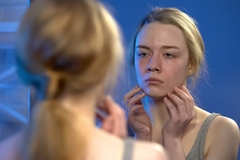South Africa pushes against plastic pollution with potential microbead ban

South Africa’s Department of Forestry, Fisheries and the Environment has proposed a ban on plastic microbeads, a common ingredient in cosmetics. The ban would apply to the production, import, export, and sale of all products containing plastic microbeads, including personal care.
The department states: “These regulations, issued under the National Environmental Management Act, 1998, target the tiny solid plastic particles under five millimetres found in cosmetics, personal care items, and more, aiming to curb their devastating impact on marine ecosystems and food chains.”
If the ban goes through, existing stocks will be subject to a mandatory 24-month phase-out period. Failure to follow the ban may result in up to 20 years’ imprisonment or a penalty of R10 million (US$571.3 million).

“The move underscores a fierce commitment to environmental preservation and public health,” says the department.
The Democratic Alliance (DA), part of the Government of National Unity, fully supports the ban.
The DA says microbeads are a particularly harmful form of microplastic, primarily used in cosmetic products for exfoliation. “They are not biodegradable and persist in waterways and oceans, polluting our food chains, bodies, and the broader environment.”
Personal Care Insights spoke with experts about biodegradable cosmetic ingredients earlier this week. They told us that swapping plastic microbeads for biodegradable microbeads is a top priority. According to a market survey from Eastman, almost 70% of consumers in Europe and the US are willing to pay more for biodegradable microbeads.
Dr. Dion George, the Minister of Forestry, Fisheries and the Environment of the Republic of South Africa, says: “This is a pivotal moment in our ongoing efforts to protect South Africa’s precious natural heritage from the scourge of plastic pollution.”
“Plastic microbeads may be small, but their impact on our oceans and wildlife is immense. By banning them, we are not only preserving biodiversity but also ensuring a healthier future for generations to come. I urge all stakeholders to engage with this process and help shape regulations that truly make a difference.”













